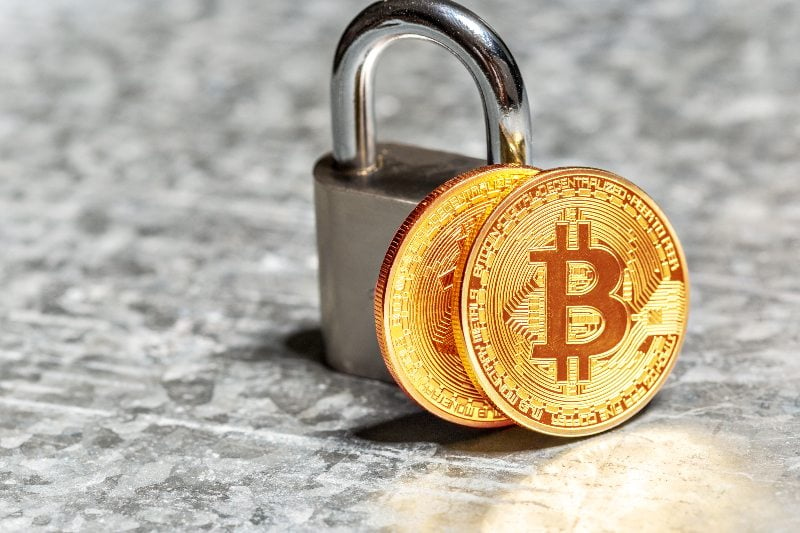Storing your Bitcoin is not an easy task, the cold wallet is a possible solution.
The safest way to store Bitcoin
All BTC are actually stored on the blockchain, i.e. public addresses for each of which there is at least one private key needed to move (i.e. use) them.
Anyone who knows the private key of a public address can freely use all Bitcoin stored on it. Therefore it is necessary to protect the private keys of your addresses with extreme care.
The absolute best way to protect them is to store them offline, i.e. in a safe place that cannot be reached via the internet.
Wallets whose private keys are stored offline, and which are not connected to the Internet, are called “cold wallets”, while those that are connected online and therefore can become operational immediately are called “hot wallets”.
In order to move your BTC, you need a hot wallet, or a network connection for the cold wallet, but to store them without having to use them, a cold wallet is the best solution.
Types of cold wallets for storing Bitcoin
There are different types of cold wallets. They all have two characteristics: they are not connected to the internet, and they store their private keys, or the seed with which they are generated, offline.
In the past, one of the most widely used cold wallets was the so-called paper wallet, which was simply a piece of paper on which the private key and public address were written.
In fact, it is possible to receive Bitcoin at your public address even if your wallet is offline since technically the BTC are on the blockchain and not on the wallet (which only serves to store the private keys).
To use a paper wallet, simply write down your private key and public address on a piece of paper, and store it carefully. You will always be able to receive BTC at that public address but to use them you will need to open a hot wallet using that private key. This is easier if you use a seed that generates several private keys, each with its own public address.
Remember that when you open a hot wallet, you can also do so with a seed or existing private keys.

Most used cold wallets
Currently, the most commonly used cold wallets are the so-called hardware wallets, which are usually USB sticks that are offline when disconnected from the computer. In this case as well, it is necessary to store the seed in a safe place, e.g. on a piece of paper.
To use a hardware wallet, you need to buy it, install it and configure it. The procedure is usually clearly shown inside the package.
Once installed and configured, it is necessary to make sure that the seed is saved in a safe way, in order to be able to recover the wallet, for example in case of malfunction of the hardware wallet. In fact, with the same seed, you can also recover your wallet using another compatible device.
At that point, you can disconnect the hardware wallet, and start receiving BTC at the public addresses automatically created during the device configuration phase.
In this way, the private keys stored in the device will not be accessible online.
In order to use the BTC received at the wallet addresses, you will need to reconnect the hardware wallet to the network, and use the device’s password or PIN to be able to send Bitcoin to other public addresses.
Hardware wallets allow much better operation than paper wallets, but at the same time maintain a comparable level of security.
Finally, there are many different types of hardware wallets, not just simple USB sticks that you plug into your computer. Although the most commonly used are USB sticks.
Storage of private keys
While the hardware wallet requires specific software to be installed on the online connected device in order to operate, the private keys are not stored by the software connected to the Internet but are always stored on the hardware wallet itself. Therefore, when you disconnect it, the private keys remain totally offline.
The most important thing you can do to store your Bitcoin is to protect your private keys, or the seed they are generated from, and make sure you are always able to retrieve them in the event of an emergency. This is also true for hardware wallets as they can always stop working properly, or be lost, in which case you only need the seed to restore your wallet.
There are also third-party services on the market that offer cold wallet storage of Bitcoin, but this implies that you either have to hand over your own seed or private keys to them or use their own wallets which only they have the private keys for. Although owning your own private keys is definitely very risky and involves taking full custody responsibility, it is still often suggested as a preferable solution rather than handing over your BTC or private keys to a third party.




